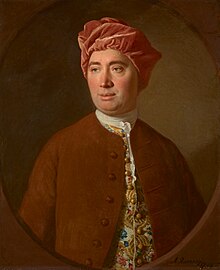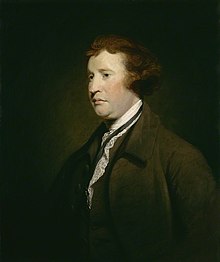
Philosophers of art
Aesthetics, or esthetics, is a branch of philosophy that deals with the nature of beauty and taste, as well as the philosophy of art (its own area of philosophy that comes out of aesthetics). It examines aesthetic values, often expressed through judgments of taste.Aesthetics covers both natural and artificial sources of experiences and how we form a judgment about those sources.
7 episodes
Episodes in this category also belong to the following categories:
Al-Kindi
Melvyn Bragg and his guests discuss the life and work of Al-Kindi, often described as the first philosopher in the Arabic tradition.
28 June 2012
Featuring: Hugh Kennedy, James Montgomery, Amira Bennison
PhilosophyEpistemologistsPhilosophers of logicAristotelian philosophersArabic-language commentators on AristotleAlchemists of the medieval Islamic worldIslamic philosophersPhilosophers of educationPhilosophers of psychologyPhilosophers of art9th-century philosophersPhilosophers of mathematicsIntellectual historyOntologistsMetaphysiciansPhilosophers of religionAstronomers of the medieval Islamic worldPhilosophers of scienceMusic theorists of the medieval Islamic worldMetaphysics writersDavid Hume
Melvyn Bragg and his guests discuss the work of David Hume, the philosopher and leading figure of the Scottish Enlightenment.
6 October 2011
Featuring: Peter Millican, Helen Beebee, James Harris
PhilosophyCriticism of rationalismEpistemologistsAction theorists18th-century British essayistsMetaphilosophersSkeptic philosophersPhilosophers of social scienceTheorists on Western civilizationPhilosophers of logicSecular humanistsSocial philosophersPhilosophy writersPhilosophers of economicsWriters about religion and sciencePhilosophers of identityBritish philosophers of educationVirtue ethicistsBritish male non-fiction writers18th-century British philosophersPhilosophers of psychologyPhilosophers of artCritics of the Catholic ChurchBritish critics of religionsPhilosophers of mathematicsAlumni of the University of EdinburghConservatismEmpiricistsOntologistsPhilosophers of mindDeist philosophersPeople of the Scottish EnlightenmentPhilosophers of religionFreethought writersBritish consciousness researchers and theoristsEnlightenment philosophersWriters about activism and social changePhilosophers of sciencePhilosophers of historyBritish male essayistsEdmund Burke
Melvyn Bragg and guests discuss the work of the philosopher, politician and writer Edmund Burke, whose views on revolution in America and France were hugely influential.
3 June 2010
Featuring: Karen O'Brien, Richard Bourke, John Keane
PhilosophyBritish political philosophersEnglish libertariansNatural law ethicistsIrish Freemasons, Irish libertarians, Irish people of English descentBritish MPs 1774–1780Historians of the French RevolutionEnglish people of Irish descent18th-century philosophersClassical liberalismStreathamitesSocial philosophers18th-century English writersPhilosophers of economics18th-century Irish philosophersVirtue ethicistsCritics of deism18th-century English philosophersPhilosophers of cultureIrish AnglicansPhilosophers of education18th-century Irish writersPhilosophers of artBritish MPs 1784–1790, British MPs 1790–1796Writers from Dublin (city)18th-century Anglo-Irish people, 18th-century Irish male writersRectors of the University of GlasgowConservatismPolitical philosophersPhilosophers of religionAnglican philosophersAlumni of Trinity College DublinBritish MPs 1780–1784, Members of the Parliament of Great Britain for English constituenciesPhilosophers of history18th-century English male writersJorge Luis Borges
Melvyn Bragg and guests discuss the life and work of the Argentinian master of the short story, Jorge Luis Borges.
4 January 2007
Featuring: Edwin Williamson, Efraín Kristal, Evelyn Fishburn
Postmodern writers, Recipients of the Legion of HonourBlind writersLiteracy and society theoristsPhilosophers of literatureTrope theoristsPhilosophers of identityMetaphor theoristsAphoristsJerusalem Prize recipientsCommanders Crosses of the Order of Merit of the Federal Republic of GermanyPhilosophers of cultureAnthologistsPhilosophers of artLiterary theorists20th-century essayistsPhilosophers of mathematics20th-century translatorsPhilosophers of timeMagic realism writers20th-century mysticsPhilosophers of mindLecturersBlind poetsSonneteersHaiku poetsSpanish-language poetsPhilosophers of pessimismMetaphysics writersSurrealist writersKierkegaard
Melvyn Bragg and guests discuss the rich and radical ideas of Soren Kierkegaard, often called the father of Existentialism.
20 March 2008
Featuring: Jonathan Rée, Clare Carlisle, John Lippitt
PhilosophyEpistemologists19th-century essayistsChristian humanistsUniversity of Copenhagen alumniMetaphilosophersExistentialistsPhilosophers of deathPhilosophers of literatureExistentialist theologians19th-century male writersChristian poetsSocial philosophersPhilosophy writersAphoristsChristian ethicistsIrony theoristsPhilosophers of culturePeople celebrated in the Lutheran liturgical calendarPhilosophers of psychologyPhilosophers of artChristian radicalsOntologistsPhilosophers of lovePhilosophers of mindMetaphysicians19th-century pseudonymous writers19th-century deaths from tuberculosisPhilosophers of religionRousseau on Education
Melvyn Bragg and guests discuss Rousseau's ideas on how to educate children so they retain their natural selves and are not corrupted by society.
10 October 2019
Featuring: Richard Whatmore, Caroline Warman, Denis McManus
Philosophy18th-century male musicians18th-century philosophersConverts to Roman Catholicism from Calvinism, Romantic philosophersPhilosophers of literatureAge of EnlightenmentProto-evolutionary biologistsSocial philosophersPhilosophers of economicsBurials at the Panthéon, ParisFrench political philosophersCatholic philosophersPhilosophers of culturePhilosophers of educationPhilosophers of artPeople with hypochondriasis18th-century classical composersDeist philosophersPhilosophers of mindContributors to the Encyclopédie (1751–1772)Classical-period composersAutobiographersEnlightenment philosophersWriters about activism and social changePhilosophers of scienceSimple living advocatesWittgenstein
Melvyn Bragg discusses how Ludwig Wittgenstein, one of the greatest philosophers of the modern age has influenced contemporary culture with his ideas on language.
4 December 2003
Featuring: Ray Monk, Barry Smith, Marie McGinn
PhilosophyEpistemologistsCambridge University Moral Sciences ClubMetaphilosophersPhilosophers of social scienceTheorists on Western civilizationWittgensteinian philosophersPhilosophers of logicAnalytic philosophersPeople with post-traumatic stress disorderBisexual male writersSocial philosophersPhilosophy writersOrdinary language philosophyFellows of Trinity College, CambridgePhilosophers of culturePhilosophers of languageLGBTQ mathematicians, LGBTQ philosophersPhilosophers of artBertrand Russell Professors of PhilosophyPhilosophers of mathematicsJewish agnostics20th-century British philosophersAlumni of Trinity College, CambridgeLinguistic turnOntologistsPhilosophers of mindAustrian people of Jewish descent, Austro-Hungarian military personnel of World War I20th-century Austrian philosophers, Austrian agnostics, Austrian essayists, Austrian logicians, British agnostics, British logicians, British people of Austrian-Jewish descent, Naturalised citizens of the United Kingdom, Writers from ViennaMetaphysiciansJewish philosophersBisexual military personnel20th-century British essayists20th-century British non-fiction writersBritish male essayists






